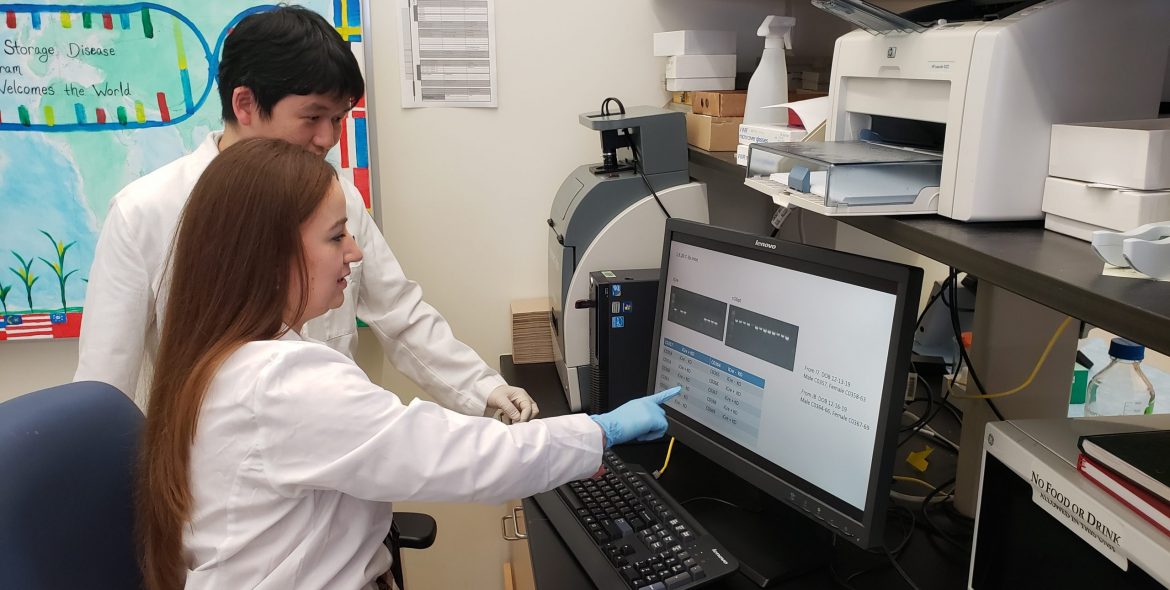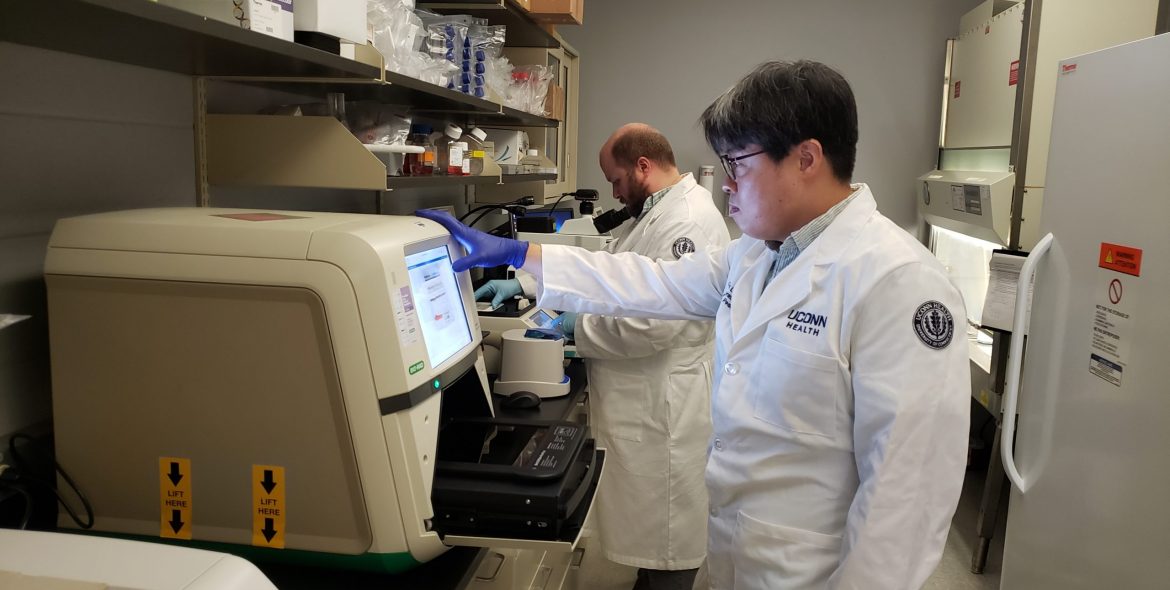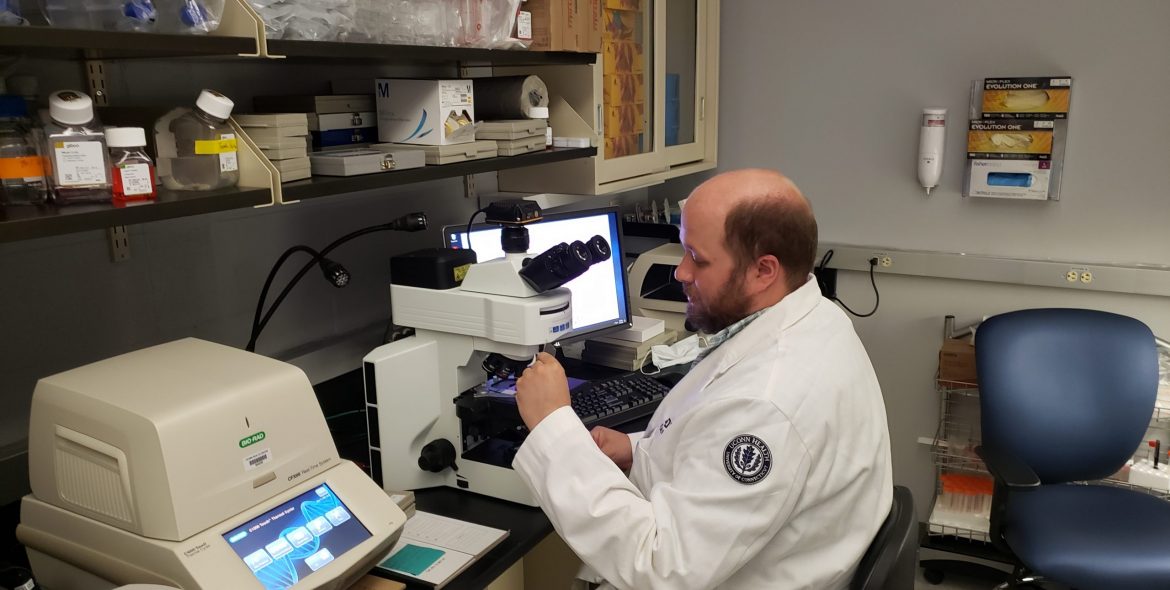The Glycogen Storage Disease Laboratory mainly focuses on two types of pre-clinical research for GSD-Ia, GSD-Ib, GSD-VI, and GSD-IX using disease model animals, including 1) the elucidation of pathological mechanisms underlying the complications of GSDs, including liver cancer, steatosis, and fibrosis as well as immune cells dysfunctions; and 2) the development of new gene therapy technology and evaluation of its efficacy and safety. The goal of our laboratory is to understand the pathogenesis in GSDs and to develop new therapeutic strategies for treatment of GSDs.
What Are GSDs?
Glycogen Storage Diseases (GSDs) are inherited metabolic disorders caused by deficiency of enzymes or proteins which involve glycogen breakdown or synthesis. There are at least 16 recognized types of GSD defined by distinct protein deficiency or affected organs. GSD can cause problems in the liver, kidney, intestine, blood cells, and/or muscle. About 1 in 20,000 babies in the United States are born with GSD and it can have a profound impact on the child’s development and overall health. Symptoms of these illnesses include growth retardation, low blood glucose, enlarged liver, kidney failure, muscle weakness, and/or defective immune system depending on each type of GSD. Importantly, shedding light on GSDs will benefit treatment not only for the patients with GSDs but also for the general population with other metabolic disorders that share similar pathological phenotypes with GSDs.
Types of GSD
GSD-I, Von Gierke’s Disease
GSD-Ia
GSD-Ia is caused by a deficiency in glucose-6-phosphatase-α (G6Pase-α). G6Pase-α hydrolyzes glucose-6-phosphate (G6P) to glucose in the step of glycogen breakdown and glucose generation from non-carbohydrate sources during fasting period. Affected patients suffer from life-threatening hypoglycemia between meals along with enlarged liver and enlarged kidney caused by excessive glycogen and fat accumulation. Hypoglycemia can be managed with strict dietary therapy. However, underlying pathological abnormalities are not completely corrected. Thus, GSD-Ia patients are at the risk of hepatic tumors and renal failure. Preclinical studies showed that recombinant adeno-associated virus (rAAV)-mediated gene therapy efficiently normalized severe hypoglycemia and prevented hepatic tumors in model animals. Based on these data, rAAV-mediated gene therapy is currently in phase I/II clinical trial for human GSD-Ia at UConn Health.
GSD-Ib
GSD-Ib is caused by a deficiency in glucose-6-phosphate transporter (G6PT). G6PT transports G6P from the cytoplasm into the endoplasmic reticulum (ER) to be hydrolyzed into glucose by G6Pase-α or G6Pase-b. GSD-Ib patients share pathological conditions with GSD-Ia, including severe fasting hypoglycemia along with long-term complications of hepatic tumors and renal failure. However, GSD-Ib patients also present with immune disorder such as low neutrophil number (neutropenia) and neutrophil dysfunction. As a result, GSD-Ib patients are susceptible to bacterial infection and should periodically receive granulocyte colony‑stimulating factor (G-CSF) therapy.
GSD-VI, Hers Disease
The liver glycogen phosphorylase is an integral enzyme in glucose metabolism, catalyzing the rate limiting step of glycogenolysis, breaking down glycogen into individual glucose-1-phosphate monomers. Mutations or deficiency of the liver glycogen phosphorylase gene PYGL, are linked to pathogenesis of GSD-VI. People with GSD-VI present with variably severe forms of hepatomegaly, ketotic hypoglycemia and growth retardation. Importantly, GSD-VI can present asymptomatically, with isolated hepatomegaly and in patients with no prior history of hypoglycemia. Due to the nonspecific degree of severity, GSD-VI may be under-represented in the general population. While protein-rich diets help to benefit GSD-VI, some of the severe long-term complications can include liver fibrosis, liver tumors, and cirrhosis.
GSD-IX
Mutations in the phosphorylase kinase (PhK) gene are associated with the pathogenesis of GSD-IX that leads to extensive glycogen accumulation, hepatomegaly, and growth retardation. While considered as mild form of GSD, nearly 10% of individuals with GSD IX have a severe phenotype which not only results in severe hypoglycemia with fasting but is associated with fibrosis and development of cirrhosis. PhK deficiency constitutes the largest subgroup of liver glycogenolysis, roughly 25% of all GSD types, with an incidence of 1:100,000 live births. The most common autosomal recessive types of GSD-IX arise from mutations linked to the human PHKG2 (gamma; γ) and PHKB (beta; β) genes. Additionally, the X-linked recessive form GSD-IX-alpha2 (OMIM 306000), or X-linked glycogenolysis (XLG), has been linked with nearly 90 causative mutations in the PHKA2 (alpha; α) gene in males and composes more than 75% of all GSD-IX cases. Due to the complexity of the PhK enzyme and isoforms of the α-, β-, or γ- subunits generated through alternative splicing, diverse disease presentations due to variable severity of enzyme activity commonly presents in GSD-IX patients.

Youngmok Lee Ph.D.
Principal Investigator
Assistant Professor of Pediatrics
University of Connecticut School of Medicine
Email: yolee@uchc.edu
Publications
Useful Links
Association for Glycogen Storage Disease
Children’s Fund for Glycogen Storage Disease Research
General Glycogen Storage Disease Research Support
GSD-Ia Gene Therapy Clinical Trial Updates



